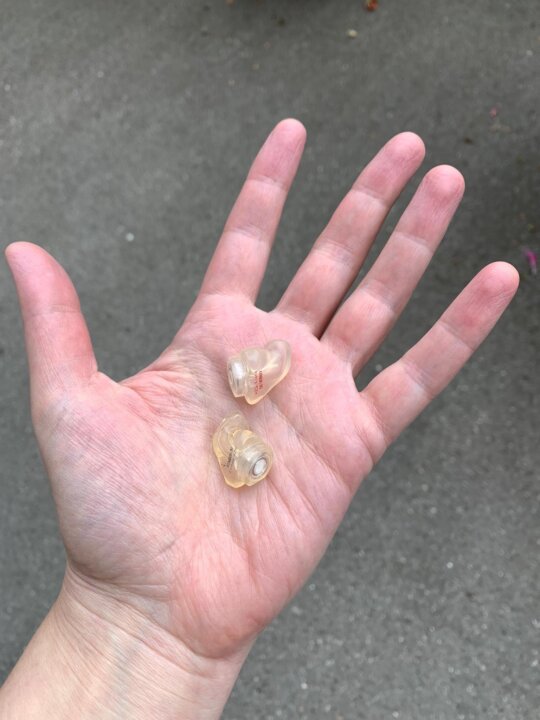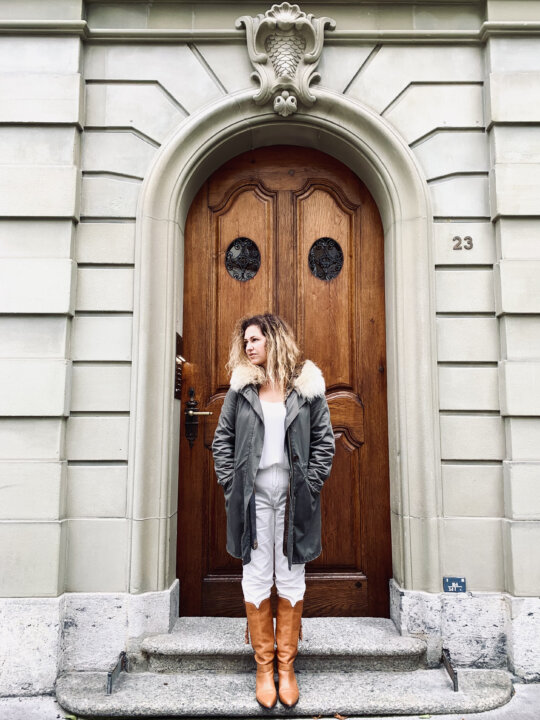







As I was leaving the house, I grabbed my coat. The weather seemed undecided. It reminded me of Ireland, of home, four seasons in the space of an hour. I stepped onto the pavement and the door swung closed behind me. I sunk my hand into one of my coat pockets to deposit my house keys then rooted around and felt something way down in there. It was a pair of earplugs.

I was suddenly thrown back to a time when I went to concerts frequently — concerts where there was amplification; concerts where there was dancing; concerts where many people came together. I was flooded by echos of exciting evenings spent in a myriad of venues. Mühle Hunziken, Café Mokka, Moods, Button Factory, Porgy and Bess, Budapest Music Center, Radialsystem, Caveau de la Huchette sped by. There on the sidewalk, I was lost in the annals of my memory, standing still, as the total impact of what I had been missing hit me for the first time since the COVID-19 lockdown.
With musicians suffering from a professional pause in their work during the pandemic, a sense of desperation quickly arose. I observed musicians clamouring for attention on the Internet, recording solo Bach Suites or Paganini caprices and uploading them daily, particularly during the first half year of lockdown. I became wary of adding to this sounding of music taking place online. Some musicians, embarrassed to talk about money, brushed over the fact that they had no income in the hope that their fans wouldn’t be “annoyed” by the miserable nature of their circumstances. The media compounded the embarrassment by offering space to Internet trolls to remark on musicians being squanderers, riff-raff and other descriptions of low-life money-vampires, sucking the financial life-blood out of society for their purported “luxurious” ideas of art. Whatever can be criticised of musicians, “playing a movement of Bach until the pandemic goes away,” the idea that a person would be deemed “annoying" by society because they cannot earn a penny during the space of a year and a half, and in many cases, do not have a universal minimum wage to fall back on, is deplorable.

I was still standing motionless on the sidewalk. I guided my mind back to the present and made my way to the farmer’s market. There, amongst the stalls and the hubbub was a dear friend of my family, a musician who volunteers at the market on Saturdays. We began to talk about how the sunny weather was lifting the spirits. (Of course, we talked about the weather! You can take the girl out of Ireland, but…) Quickly, our conversation turned to the pandemic, the lack of opportunities there were to play, the stifled potential of artistic expression and output, the loneliness of not being able to meet other musicians, to rehearse — let alone brainstorm.
Then, this friend told me that the pandemic, at first, had seemed like a welcome break from the restless touring-musician life. He had time to focus on his family and even sleep in some days. However, more recently he had begun questioning his motivation — he realised that music had always been a form of rebellion for him. Now, with no stage on which to play, no space in which to share thoughts about music with his students, and no resonance from live audiences, he was doubting his career choice and felt himself sliding into depression.
Our first lockdown saw my family and I move to Biel, my husband’s hometown. When the virus pushed the globe’s citizens inside, I initially observed our behaviour, our adaptation to restrictions, and how the world was reacting to the pandemic. I noticed the sigh of relief I made when I realised that my body would still receive time to heal after giving birth, and that I would not have to dive into the complex management of touring whilst tending to my newborn child.
One morning in May 2020, I found myself in bed in the morning, alone. It was one of the first times since lockdown that I was not surrounded by family. Enjoying the luxury of it, I decided to listen to some music. I chose to spend a moment with Lisa Hannigan and listen to a live set she had performed the day before in Dublin’s National Gallery. Within a handful of minutes I found myself sobbing — the tears came completely and unexpectedly as I realised how much I missed live music, making music with others, keeping it simple with music. No finicky iPhones recording questionable renditions of Bach, no noise around everyone’s opinion on what would be best for musicians or artists before, during or after the pandemic. Just music.
When the stages reopen and life goes back to ‘normal’, consider not forgetting this past year and a half and what is has meant to you, the musician, the artist, or you, the listener. Dive into deep thought — it might change the way you listen, play, perform, express art, and it will certainly amplify your appreciation.